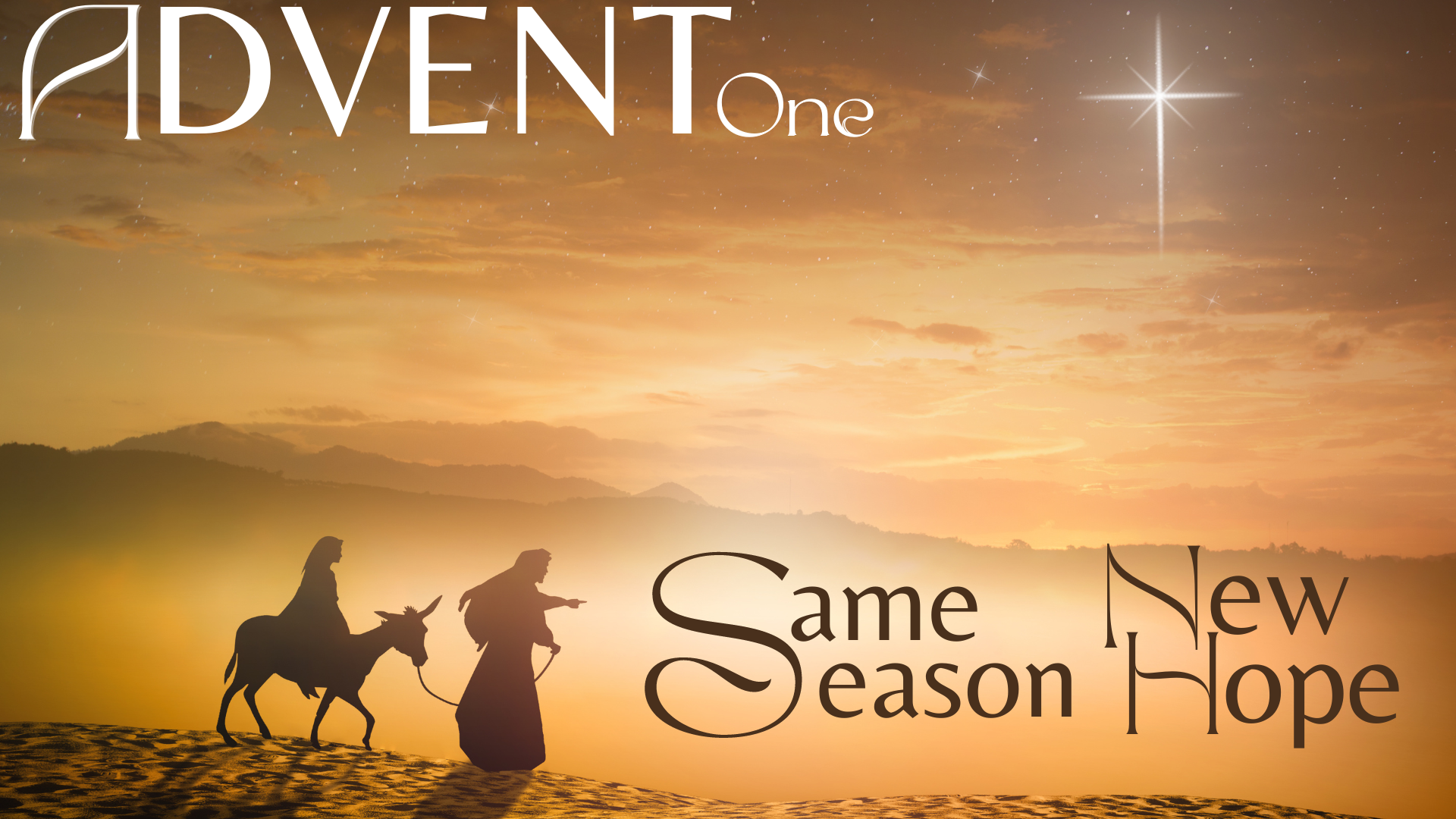
Advent: Same Season, New Hope
How do you have hope, when you don’t feel very hopeful? I encourage you to start your Advent season by reading the book of Habakkuk – a very short prophetic book found in the Old Testament. Habakkuk's complaint is not just that there is injustice in the world. It is really a complaint against God's apparent inaction in the face of that injustice. Habakkuk wonders why God has not acted to right the wrongs. I'll bet there's been a time when everyone has asked these same questions: Where is God? Has God heard me? Does God care?
So Habakkuk asks, and then he waits. I find it humbling that Habakkuk waits not to see IF God will respond, but rather to hear what God WILL say. Chapter 2 says “I will stand at my watch post and station myself on the rampart, I will keep watch to see what he will say to me.” This reveals a true depth of trust in God. And so he waits expectantly.
Habakkuk rested on his faith and trust in a God whom he knew to be dependable. He knew that God had acted in the history of his people before and that he would yet again. It really boils down not to whether or not we BELIEVE in God, but whether or not we TRUST in God. To me, this is the essence of hope – trusting God, even against all odds.
This is not easy, I know. We live in a day and age where the best-selling Christian books seem to be the ones that tell you how to prosper and succeed. And I would guess that most of us exercise faith and hope in God when we are prospering, when life is going well and according to our plans. But Habakkuk challenges us to put our faith in God even during the hard times. When Habakkuk reached the end of his journey, he had finally came to a place of hope and confidence in God, even as he anticipated the difficult circumstances ahead. This is what hope is about.
And then he gives us one of the most profound and faithful praises we find in all of Scripture: “Though the fig tree does not blossom and no fruit is on the vines, though the produce of the olive falls and the fields yield no food; yet I will rejoice in the Lord. I will exalt in the God of my salvation. God, the Lord is my strength, God makes my feet like the feet of a deer and makes me tread upon high ground.” Habakkuk is saying that though I have no visible sign of hope for the future, nothing tangible I can see or touch right now, I will hold on to God, and that will be enough. And not only will I hold onto God, but I will rejoice in God.
Maybe when it's all said and done, at the end of the day, all those questions we have for God may remain unanswered, just as though they were for many of the prophets in the Bible. But each time we break bread at God's table, we are reminded how closely God is identifying with our woundedness. God shares our pain. And although we may be feeling abandoned by God, we are not being abandoned by God. This is a hope worth celebrating.
